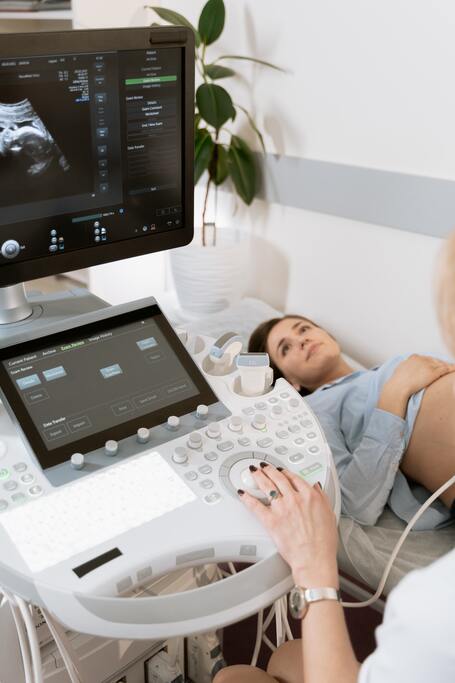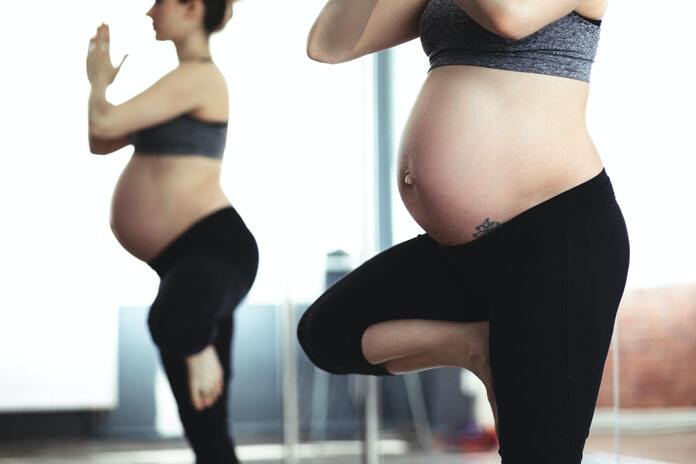Although weight loss during pregnancy might be alarming, there are a variety of potential causes and frequently straightforward remedies.
Is weight loss during pregnancy safe?
Typically, doctors do not advise pregnant women to reduce weight. Instead, they advise expecting mothers to concentrate on eating enough food and exercising regularly to maintain their own and the unborn child’s health. Generally speaking, physicians shouldn’t advise pregnant obese women to lose weight. Some contend that shedding pounds now might put the infant at danger for difficulties.

A doctor can give guidance on how to prevent potential difficulties if a woman is obese or overweight before getting pregnant. In a perfect world, a woman would aim to reduce weight before getting pregnant. Research suggests that pregnant women who are 60 pounds or more overweight may not need to gain weight. The fetus can obtain energy from their body’s fat reserves.
A woman will often be shedding fat reserves throughout pregnancy if she does not acquire any weight. She could normally weigh less after giving birth than she did before to being pregnant.
What causes you to have weight loss during pregnancy?
First trimester morning sickness and nausea, which decrease appetite, or changing to a healthy diet are the two primary causes of weight loss during pregnancy women.
Morning sickness
First of all, a lot of pregnant women have morning sickness between weeks 6 and 12. Even if you are not really vomiting, the sensation of nausea might cause you to consume less calories each day since you are unable to face eating or drinking much because you feel so ill.

It’s normal to lose a little weight from morning sickness and the accompanying nausea or vomiting, and your baby won’t get hurt. Have in mind that your kid is just approximately 5 cm long at 12 weeks, thus relatively little calories and nutritious components are required at this time (although vitally important).
Others reason
A healthy food and way of life are the second factor that may contribute to have weight loss during pregnancy at the first trimester. After learning they are pregnant, many expecting moms actively choose a healthier diet and exercise routine. Hence, their overall calorie intake is generally lower than the calories they are burning while activity and developing their kid.

While adopting these better living habits is beneficial for both mother and child, it’s vital to keep in mind that your body is developing a new life, so you may need to increase the number of nutritious snacks you eat each day as your pregnancy advances.
But in most cases, if you lose more than 5–10% of your body weight, this is important and you may need additional testing and care for more serious reasons, such as Hyperemesis gravidarum (extreme nausea and vomiting that frequently necessitates hospital treatment). It’s critical to have a medical evaluation if you experience this kind of weight loss from your doctor or midwife.
What should you do if you have weight loss during pregnancy?
This is necessary at any point in your pregnancy, but the second or third trimesters are particularly critical. The best course of action will be suggested by your doctor or midwife after they have determined the problem (perhaps by doing certain lab tests). The remedy for nausea may be as straightforward as an over-the-counter vitamin supplement, such vitamin B6, or a prescription-strength drug. Intravenous fluids can frequently assist with weakness and dizziness.

In addition, mindful eating is essential to prevent weight loss when pregnant. Remember the following tactics:
- Stay hydrated
- Eat more frequently, smaller meals
- Avoid disgusting foods and odors.
- When you get up in the morning, immediately have a little snack, such as a cracker.
- Continually take your prenatal vitamin
- No need to quadruple your intake; just add roughly 300 more calories daily. The simplest method to do this is to consume nutritious snacks in between meals.

